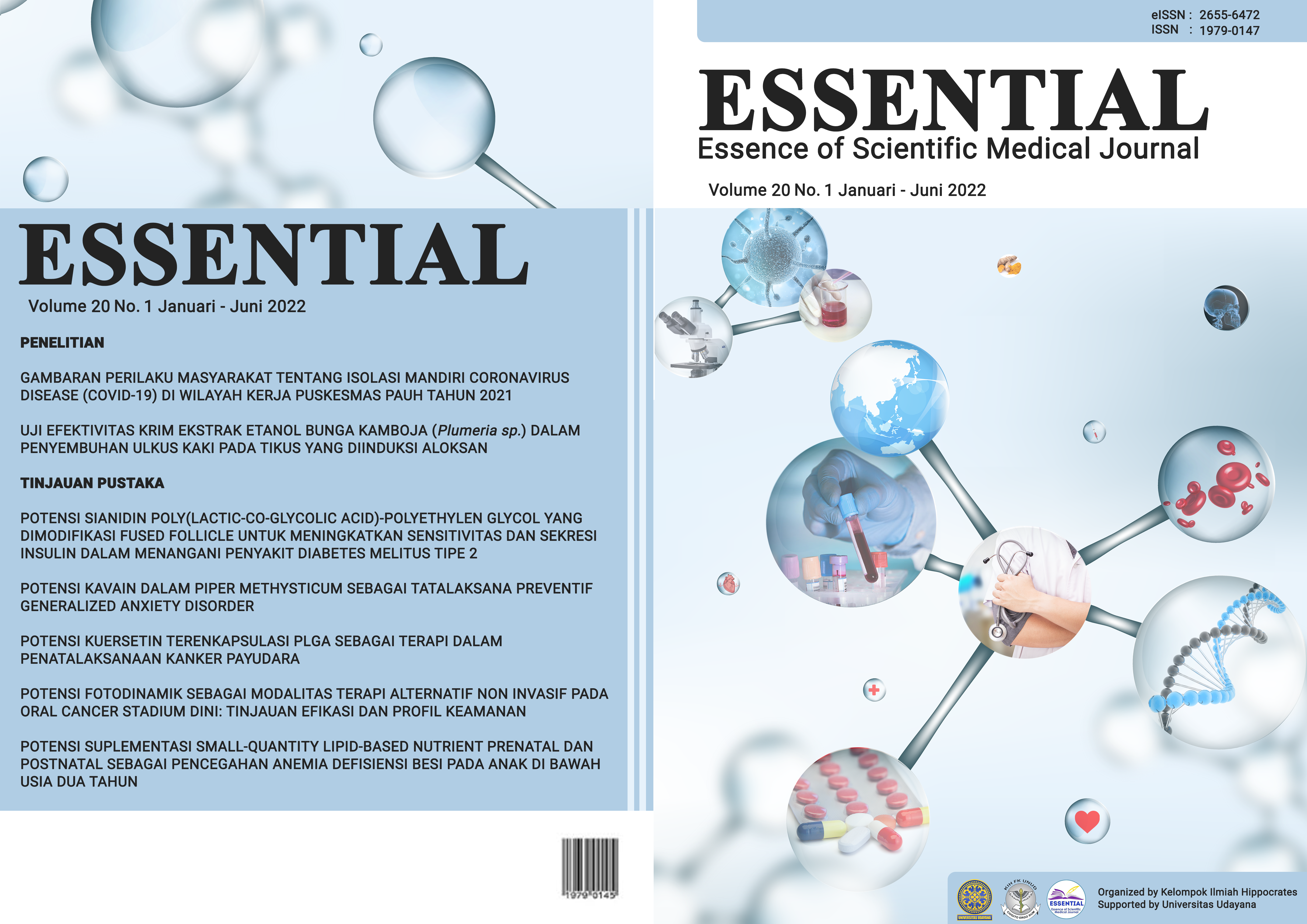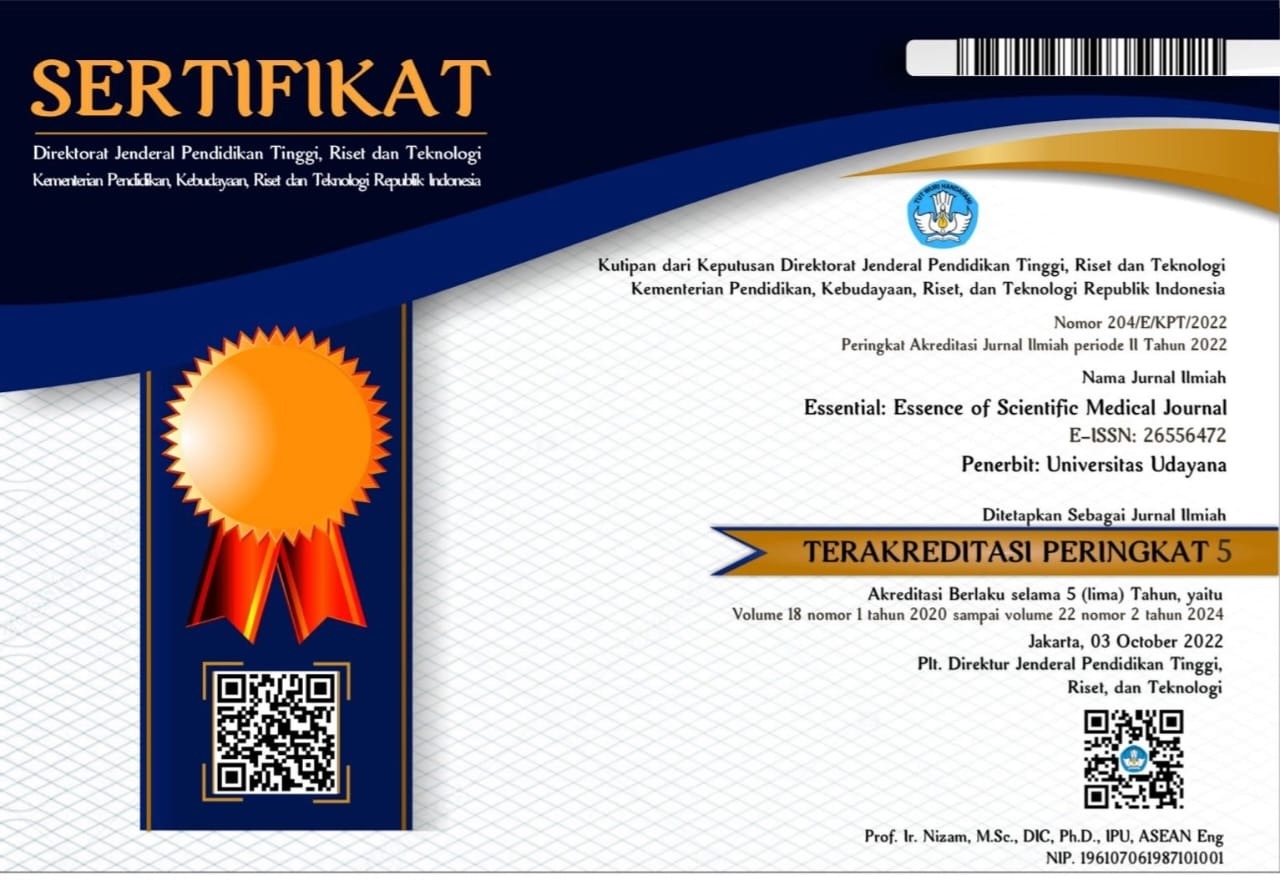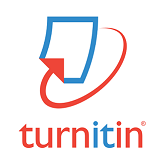POTENSI SUPLEMENTASI SMALL-QUANTITY LIPID-BASED NUTRIENT PRENATAL DAN POSTNATAL SEBAGAI PENCEGAHAN ANEMIA DEFISIENSI BESI PADA ANAK DI BAWAH USIA DUA TAHUN
Abstract
Introduction: Iron Deficiency Anemia (IDA) is considered a public health problem in Indonesia. The main consequences of IDA in infants include increased risk of permanent cognitive and psychomotor impairments that can lead to decreased quality of life in adulthood. Recommendations for iron supplementation for pregnant women and infants have uncomfortable side effects leading to poor adherence. Small Quantity Lipid-Based Nutrient Supplement (SQ-LNS) was developed as a novel iron fortification approach for pregnant and lactating women and children. The objective of this literature review is to analyze the effectiveness of SQ-LNS supplementation to prevent IDA in infants under two years of age.
Methods: A Literature review was constructed with PICOS criteria and the clinical trial data were extracted from “PUBMED”, “Cochrane”, and “Europe-PMC” databases, matching the inclusion criterias.
Results and Discussion: 10 studies were included in the literature review. IDA biomarkers such as Hemoglobin, serum Ferritin, and soluble transferrin receptor (sTfR) were significantly better in the SQ-LNS groups compared to control. Thus, the prevalence of anemia, iron deficiency, and iron deficiency anemia were lower in the SQ-LNS groups compared to control. SQ-LNS also optimized the level of Hepcidin and enhanced the growth and development of infants, represented by higher length-for-age z scores, weight-for-age z scores, locomotor development scores, and lower prevalence of stunting.
Conclusion: SQ-LNS supplementation for pregnant women, nursing mothers, and children under two years of age has the potential to optimize Hb levels, serum Ferritin, sTfR, as well as prevent IDA in children and support child growth and development.
Downloads
References
2. Miller JL. Iron deficiency anemia: A common and curable disease. Cold Spring Harb Perspect Med. 2013;3(7):1–13.
3. Statistik BP. No Title [Internet]. 2013. p. Bps.go.id.
4. Roganović J, Starinaca K. Iron Deficiency Anemia in Children. Curr Top Anemia. 2018;
5. Pivina L, Semenova Y, Doşa MD, Dauletyarova M, Bjørklund G. Iron Deficiency, Cognitive Functions, and Neurobehavioral Disorders in Children. J Mol Neurosci. 2019;68(1).
6. Plessow R, Arora NK, Brunner B, Tzogiou C, Eichler K, Brügger U, et al. Social costs of iron deficiency anemia in 6-59-month-old children in India. PLoS One. 2015;10(8).
7. Jorgensen JM, Ashorn P, Ashorn U, Baldiviez LM, Gondwe A, Maleta K, et al. Effects of lipid-based nutrient supplements or multiple micronutrient supplements compared with iron and folic acid supplements during pregnancy on maternal haemoglobin and iron status. Matern Child Nutr. 2018;141. Jorge(4):1–11.
8. Stewart CP, Wessells R, Arnold CD, Huybregts L, Ashorn P, Becquey E, et al. Lipid-based nutrient supplements and all-cause mortality in children 6-24 months of age: a meta-analysis of randomized controlled trials. Am J Clin Nutr. 2020;111:207–18. doi: 10.1093/ajcn/nqz262
9. Sheikh SS, Prinzo WZ, DasJK BZ, SheikhS S, PrinzoZ W. Preventive lipid-based nutrient supplements given with complementary foods to infants and young children 6 to 23 months of age for health, nutrition, and developmental outcomes (Review). Cochrane Database Syst Rev. 2019;5(5). doi: 10.1002/14651858.CD012611.pub3
10. Prinzo WZ, DasJK BZ, PrinzoZ W. Lipid-based nutrient supplements for maternal, birth, and infant developmental outcomes (Review). Cochrane Database Syst Rev. 2018;8(8). doi: 10.1002/14651858.CD012610.pub2
11. Abbeddou S, Yakes Jimenez E, Somé JW, Bosco Ouédraogo J, Brown KH, Hess SY. Small-quantity lipid-based nutrient supplements containing different amounts of zinc along with diarrhea and malaria treatment increase iron and vitamin A status and reduce anemia prevalence, but do not affect zinc status in young Burkinabe children: a cl. 2017;17(46).
12. eeZee20TM - GC Rieber Compact [Internet].
13. Matsungo TM, Kruger HS, Smuts CM, Faber M. Lipid-based nutrient supplements and linear growth in children under 2 years: a review. Proc Nutr Soc. 2016;76(4):580–8. doi: 10.1017/S0029665117000283
14. Matias SL, Mridha MK, Young RT, Khan MSA, Siddiqui Z, Ullah MB, et al. Prenatal and postnatal supplementation with lipid-based nutrient supplements reduces anemia and iron deficiency in 18-month-old bangladeshi children: A cluster-randomized effectiveness trial. J Nutr. 2018;148(7):1167–76. doi: 10.1093/jn/nxy078
15. Stewart CP, Dewey KG, Lin A, Pickering AJ, Byrd KA, Jannat K, et al. Effects of lipid-based nutrient supplements and infant and young child feeding counseling with or without improved water, sanitation, and hygiene (WASH) on anemia and micronutrient status: Results from 2 cluster-randomized trials in Kenya and Bangladesh. Am J Clin Nutr. 2019;109(1):148–64. doi: 10.1093/ajcn/nqy239
16. Smuts CM, Matsungo TM, Malan L, Kruger HS, Rothman M, Kvalsvig JD, et al. Effect of small-quantity lipid-based nutrient supplements on growth, psychomotor development, iron status, and morbidity among 6-to 12-mo-old infants in South Africa: A randomized controlled trial. Am J Clin Nutr. 2019;109(1):55–68. doi: 10.1093/ajcn/nqy282
17. Phuka J, Ashorn U, Ashorn P, Zeilani M, Cheung YB, Dewey KG, et al. Acceptability of three novel lipid-based nutrient supplements among Malawian infants and their caregivers. Matern Child Nutr. 2011;7(4):368–77.
18. Matias SL, Mridha MK, Young RT, Hussain S, Dewey KG. Daily Maternal Lipid-Based Nutrient Supplementation with 20 mg Iron, Compared with Iron and Folic Acid with 60 mg Iron, Resulted in Lower Iron Status in Late Pregnancy but Not at 6 Months Postpartum in Either the Mothers or Their Infants in Bangladesh. J Nutr. 2018;148(10):1615–24. doi: 10.1093/JN/NXY161
19. Adu-Afarwuah S, Lartey A, Okronipa H, Ashorn P, Zeilani M, Baldiviez LM, et al. Impact of small-quantity lipid-based nutrient supplement on hemoglobin, iron status and biomarkers of inflammation in pregnant Ghanaian women. 2016;
20. Stewart CP, Fernald LCH, Weber AM, Arnold C, Galasso E. Lipid-Based Nutrient Supplementation Reduces Child Anemia and Increases Micronutrient Status in Madagascar: A Multiarm Cluster-Randomized Controlled Trial. J Nutr. 2020;150(4):958–66. doi: 10.1093/jn/nxz320
21. Humphrey JH, Mbuya MNN, Ntozini R, Moulton LH, Stoltzfus RJ, Tavengwa N V, et al. Independent and combined effects of improved water, sanitation, and hygiene, and improved complementary feeding, on child stunting and anaemia in rural Zimbabwe: a cluster-randomised trial. Lancet Glob Heal. 2019;7(1):e132. doi: 10.1016/S2214-109X(18)30374-7
22. Cichon B, Fabiansen C, Iuel-Brockdorf A-S, Yaméogo CW, Ritz C, Christensen VB, et al. Impact of food supplements on hemoglobin, iron status, and inflammation in children with moderate acute malnutrition: a 2 × 2 × 3 factorial randomized trial in Burkina Faso. Am J Clin Nutr. 2018;107(2):278–86. doi: 10.1093/AJCN/NQX050
23. Addo OY, Locks LM, Jefferds ME, Nanama S, Albert B, Sandalinas F, et al. Combined infant and young child feeding with small-quantity lipid-based nutrient supplementation is associated with a reduction in anemia but no changes in anthropometric status of young children from Katanga Province of the Democratic Republic of Congo: . Am J Clin Nutr. 2020;112(3):683. doi: 10.1093/AJCN/NQAA170
24. Adu-Afarwuah S, Young RR, Lartey A, Okronipa H, Ashorn P, Ashorn U, et al. Supplementation with Small-Quantity Lipid-Based Nutrient Supplements Does Not Increase Child Morbidity in a Semiurban Setting in Ghana: A Secondary Outcome Noninferiority Analysis of the International Lipid-Based Nutrient Supplements (iLiNS)-DYAD Randomi. J Nutr. 2020;150(2):382–93.


 SUBMISSION
SUBMISSION
















